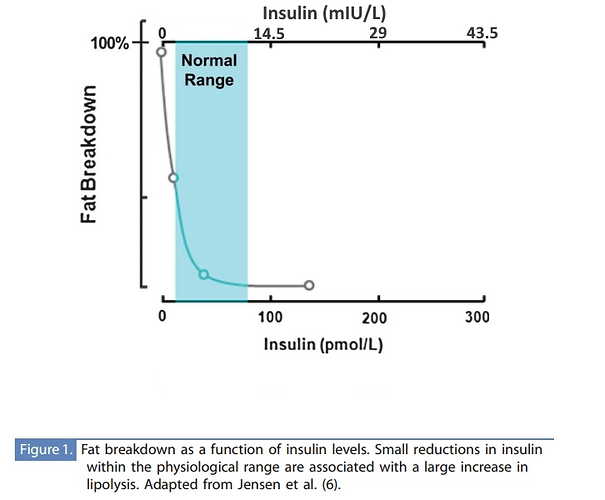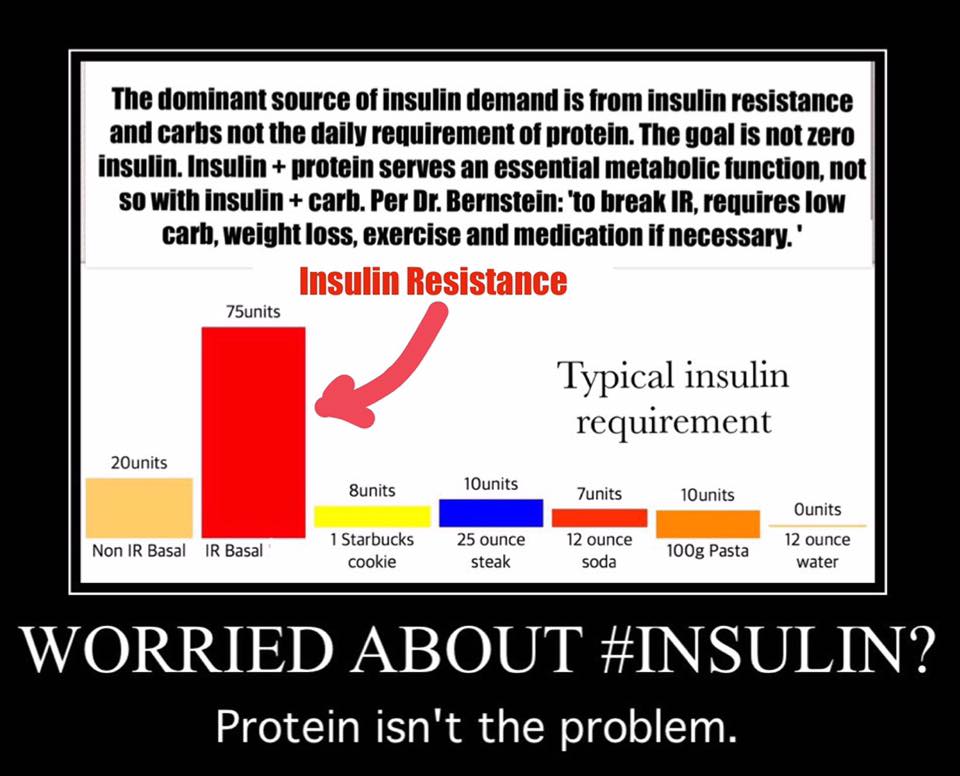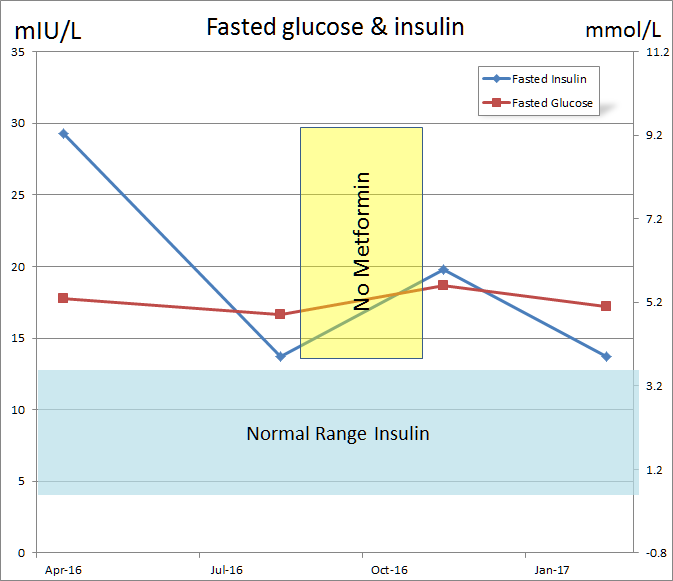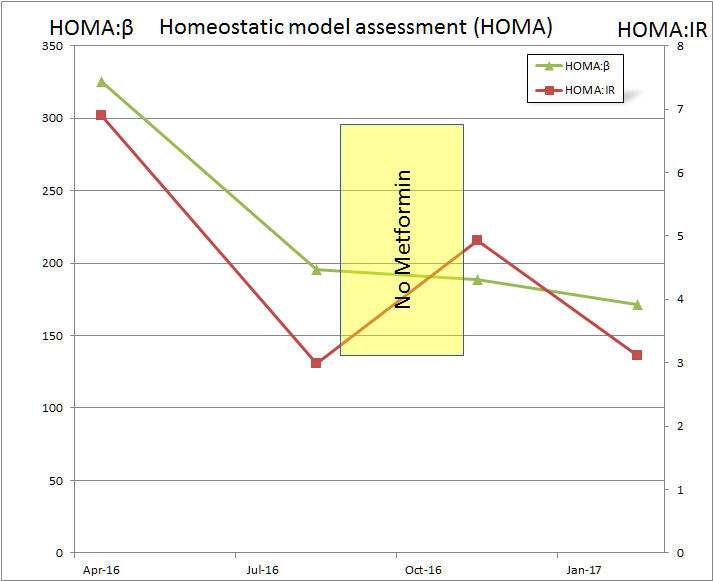it cost me an extra $40 on my regular quarterly draw but I wish I had done it from the get go … cos my fasted insulin when I had an HbA1c of 11.2% must have been up around 200.
I. Am. So. Frustrated!
I would pay literally any amount of money to get the results I want.
I’d probably have to be 5 day fasted and riding about 3 hours on the bike and at altitude to see a 5.7 mmol/l ketones.
Yup.
One tip, if you have total cholesterol over 6 you can apparently get a lipid subfraction analysis done once every 6 months on medicare (no charge). It’s “LDL subfraction” on the pathology request. The lowest my total cholesterol has been since I went off statins in 2014 was the week I tried @DaveKeto’s protocol eating 2 cups of macadamias a day for 3 days prior … 6.2 … SCORE.
ouch. It’s only $100.
And to be honest I think it’s really only useful to get a GP brandishing Statins off your back.
Trigs below 1.0 for me is just as good a guideline for cholesterol being pattten A (non atherogenic).
But when it comes to convincing your GP on a course of action, it’s nice to have a colourful chart and a path lab analysis that confirms pattern A LDL.
Thank you for posting that chart! So many people don’t seem to understand that you can eat too much fat!
That calculator also assumes you can use all the body fat you have, and gives you a number of calories that that body fat can release every day. If for any reason your body fat can’t release any energy then that would additionally restrict the energy it can contribute to your total daily energy expenditure (TDEE).
For example if you have more than about 13 mIU/L of Insulin at any point then body fat is not contributing any energy.
So what makes insulin go up?
- eating carbs
- eating protein (but only 50% as much as carbs)
- making glucose to keep your brain alive (which you kind of have to do)
- stretching your stomach
But what makes it REALLY go up is being insulin resistant and doing any of the above
That chart is a popular meme on Facebook trying to encourage people to eat more protein, but it also explains succinctly why people who are insulin resistant have similar access to stored energy as people who are lean - namely they have access to very little energy from body fat.
It also nicely refutes Ted Naiman’s hypothesis that obese people are always protected from Rabbit starvation on a PSMF that lean people would be at risk of.
Obese people with low basal insulin? Then yes, I would agree that body fat protects against rabbit starvation.
However people with insulin resistance are overwhelmingly in the majority among the obese population. So for the majority of people who are obese, for those who are insulin resistant, a protein sparing modified fast would be just so much metabolic jackass.
So the question for someone who is insulin resistant should be - how do I lower my basal insulin so I can access body fat?
There is an acute method, extended fasting. If I fast longer than about 36 hours all of a sudden I experience a rush of energy as my insulin finally drops low enough to allow access to body fat - and then it’s party time until I stop the fast, and a few hours after breaking the fast I am back to making no ketones and becoming hungry when I don’t eat sufficient fat to fuel my day. Obviously fasting isn’t a long term strategy but it does provide a metabolic window of being almost normal during which I can do prodigious amounts of fasted exercise.
There is a chronic solution too tho. Time. We become insulin resistant over time exposed to higher levels of insulin. So the longer we can function producing the least insulin we can, the more sensitive we become, and the less we need to produce in response to our basal glucose levels that we MUST have to keep our brains alive. This involves eating as little carbohydrate as you can, and the minimum amount of protein to support your normal lean mass maintenance … AND once a week depleting muscle glycogen to give your body a sink into which to pour insulin.
Here are my results from the past 18 months
That shows my fasted insulin for the past year, now this is year 2-3 into a ketogenic diet in which I have already lost 40 kgs and you can see that last April my insulin when I wasn’t eating anything for 12 hours was 29.3 mIU/l (202 pmol/l). By August 2016 I had almost gotten it down into the range where I would get reasonable access to energy from body fat (that cyan zone of Normal range insulin).
Late in 2016 a doctor told me that I couldn’t claim to have reversed my diabetes because in his opinion my glucose would go back up to 10+ as soon as I went off metformin. So I went off metformin for 3 months to make a point. My glucose stayed pretty stable, but my fasted insulin took a hit.
I regret not having a fasted insulin test from when I was really diabetic and my fasted glucose was over 20 mmol/l (350 mg/dl). That would have been interesting to know.
But since I have a year of fasted insulin and fasted glucose it is worth looking at a year of my insulin resistance and pancreatic beta output
Going off metformin makes me more Insulin resistant, but interestingly my beta output remains consistent. That implies I am under the threshold at which I overload my pancreas, so I am slowly improving it’s insulin (beta) function.
This seems like a good possibility for the reason I have not lost even an ounce of weight since starting keto 3 months ago, even though I’m also working out, doing IF, and a few EF’s. …but I don’t want to jump to conclusions. My typical ketones are under 1.0 (usually 0.4-0.8) and my BG is usually around low 70’s in the morning.
Does insulin resistance tend to affect these numbers - I.e. Is it possible to be IR with these averages? I’m going to find a doctor that knows keto and ask to get my basal insulin tested.
Is the only way to test in a doctor’s office?
Two things strike me as something to investigate - insulin as Richard mentioned and cortisol. If you want to test cortisol go for the saliva test kit that takes 4 samples during the day and analyses the same (i.e. doesn’t lump into one average reading). Stress will have an impact on weight loss as will inflammation. Chances are your body has hunkered down a bit these last few months with the stress it has been under. You add to that the fact that you could easily be where your body wants to be weight wise. Richard has discussed this before on a podcast - your body is more interested in being able to hunt, run and fight when it needs to and also go without food for a few days. To do that it needs a min amount of body fat which will vary from person to person.
As to @akirby83’s suggestion to lower fat - I think you know what I think about that and it is likely the same as you. CICO indeed is the first thing that comes to mind. The lower fat school of thought as he puts it still suggests higher fat at maintenance and you are at or near that. You could potentially wring a few pounds out this way but could you sustain it? Doubtful. So what would be the point?
If you have some money to put into testing, I would do that. I would be looking at insulin, adrenals/cortisol, thyroid, an iron panel inc B12 and folate, D. There could easily be something going on on the inside that is holding you back.
Re all those adaptation markers - I haven’t had any of the big hits either really. I have noticed all round improvement, especially with migraines and depression. I am not sure that we all get those highs and buzzes. We are all unique after all.
I was an endurance cyclist prior to starting my Keto journey, and I gained 4 pounds in my first three months. Then, the weight just started to drop off.
It’s possible that maybe something effects the deepness of the adaption of the endurance athletes differently; I don’t honestly know. I find it interesting. The irony at the time was that I was only really looking to do long rides without having to eat all the time. The weight loss was an nice bonus.
I hope you figure it out.
You may also want to have some basic thyroid function testing done, as that can effect weight loss too. Might be something hormonal happening there too.
Do you or @richard know which test to order off this list? There are three insulin related ones.
I would think it would be http://requestatest.com/insulin-free-and-total-test but I don’t honestly know. By the time I started doing more frequent blood testing, I didn’t feel I was insulin sensitive again and didn’t feel the need for the test.
@DaveKeto might have a better idea, as he orders blood testing all the time.
$159 is expensive. I think that’s more for type 1s to determine how well they are using insulin. I wouldn’t know how to read a free and total diagnostic.
I think this one is more like it http://requestatest.com/insulin-testing
That is $49. I pay $40 Australian (roughly $30 US) so that is likely to be the one.
Thanks @Daisy!! I’ve had thyroid, cortisol, etc tested. Thyroid and adrenals are a-okay, cortisol (vía saliva test) was high. I’m buying the insulin test and will report back.
Hi Andrea -
I would start first with a close look at what you’re eating before looking at blood work. If you aren’t already, I strongly urge you to track everything you’re eating and share back here for advice.
With regard to blood work, I see there’s a lot of context throughout this thread that I was having trouble reading through – can you summarize real quick what you’re looking for?
Reading though more of the thread, I’d recommend getting a full work up. This will include what was mentioned above…
Comprehensive Metabolic Panel (CMP)*, Complete Blood Count (CBC), Cortisol, High Sensitivity C-Reactive Protein (hsCRP), Ferritin, hbA1C, Thyroid Panel, Fasting Insulin, Nuclear Magnetic Resonance (NMR) Lipoprofile
IMPORTANT: I’d want you to also take your Ketones (BHB) around the time you were getting this blood draw to have for comparison as well.
Of course, be sure to fast 12-14 hours before the blood draw (which is standard advice) – try not to exceed 14 hours by too much as it will affect the results.
Of the tests above, I’d be particularly interested in Fasting Glucose (included in CMP), Fasting Insulin, and NMR. They’ll provide a strong clue on the actual energy build up within your system and its management, which will really say a lot about the overall metabolism situation.
Thanks Dave. I tracked everything for the first 2 months and I can go back to doing that, but honestly - I think (for me) it causes more stress than it is beneficial. When I track, I get obsessed with CICO and I’m trying really hard not to fall into that mentality anymore.
I don’t have a lot “sneaky carbs” because the only carbs I get are from leafy green vegetables and OCCASIONALLY, a handful of nuts. I eat whole foods - eggs, bacon, steak, etc. I’m intermittent fasting most days.
My ketones sit between 0.4 and 0.8 most days, though I get into higher numbers when I do big endurance bike rides or extended fasting. My usual Blood Glucose in the mornings is in the 60-70’s.
What I’m looking for: to find out if there are any issues (like insulin resistance) that are preventing me from experiencing weight loss on keto. My history: no health problems, I work out consistently (both HiiT training and endurance cycling) have had a full thyroid panel in the past and was in the perfectly normal range, have had saliva test and my cortisol and testosterone were high. I also think seeing an endocrinologist may be a good idea, as I don’t go to the bathroom regularly - I’m currently supplementing with magnesium (citrate/malate pills, citrate liquid in keto-aide, and Natural Calm at night), potassium, stool softeners, and I’m even taking Aloe Lax at night, and it still doesn’t happen but every 2-3 days, so it seems there is some war being waged inside my body.
Benefits I’ve experienced on keto: being able to longer without feeling hunger, my allergies have SIGNIFICANTLY reduced (I used to have a few allergy attacks a week, now I stopped taking Zyrtec altogether and haven’t had a single allergy attack), able to do endurance rides without fueling on the bike.
Once I get these tests done, if it turns out I’m “normal” by all the standards, then at least I’ll know. My body despises losing weight, not matter what diet I do or how much I work out. This has been the consistent theme of my life - I STRONGLY believe keto will change that, and having these tests will give me the peace of my mind I need to KCKO. OR…if it turns out that I do have some other issue, I’ll be able to address it.
I’ve gained 4 lbs, so I totally her what you are saying. Mine might be muscle, but it’s hard for me to believe I’ve gained 4 lbs of muscle, bone density, etc. Some of my clothes fit better, some DO NOT. I’ve changed things up like this:
- Tons more water. I was thirsty all the time, so feel like I was dehydrated. Doing 1 gallon a day now
- DIM Supplement (see my post under supplements about this). I think my hormones are wacky, and I’m going to get those checked next
- Added a probiotic
- Cut out MOST all sweet keto treats. Was getting out of hand
- Adding in more veggies, cutting down on added fat. I just don’t think I need to add in fat at this stage.
- Added in 3 more tabata training routines to my week
Soooooo… all that said, I will keep tweaking until I find what is right. I feel like I’m gaining weight all in my midsection and that’s really pissing me off.




